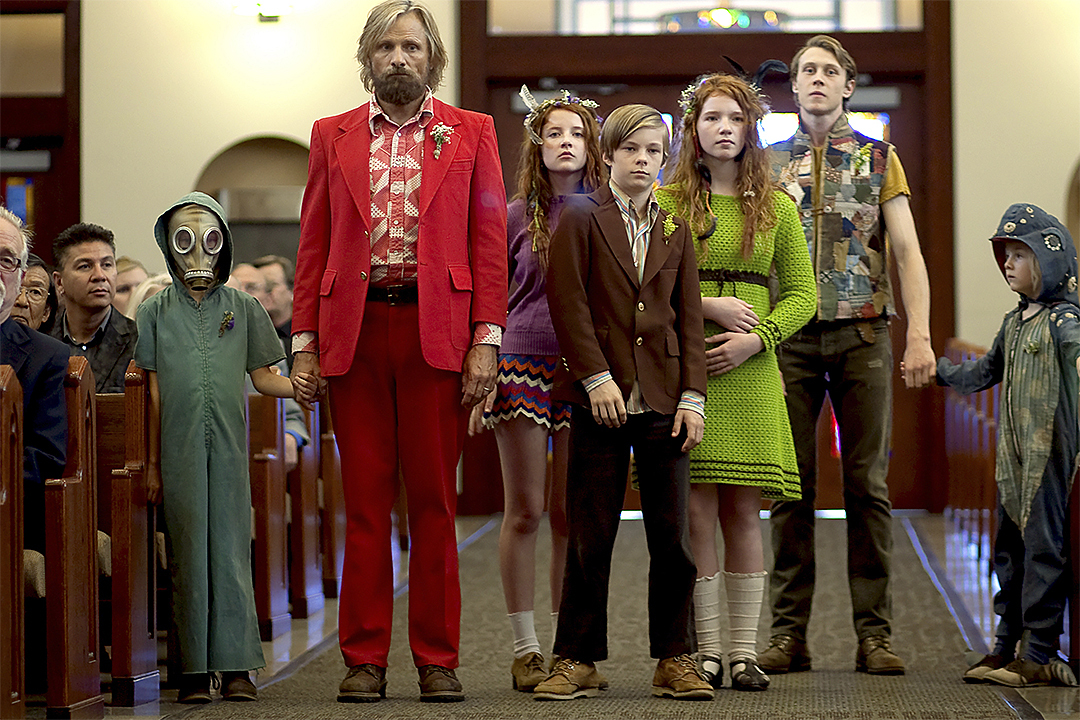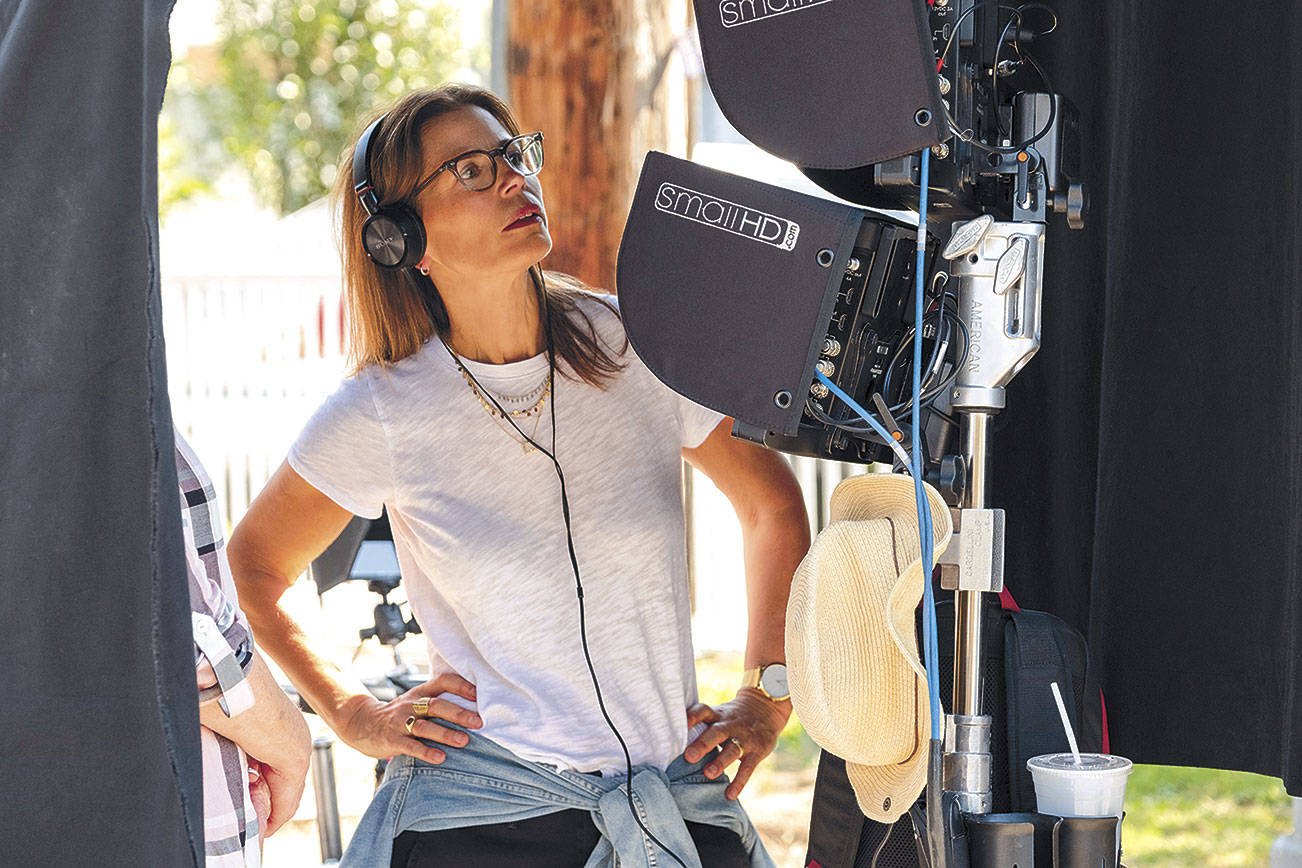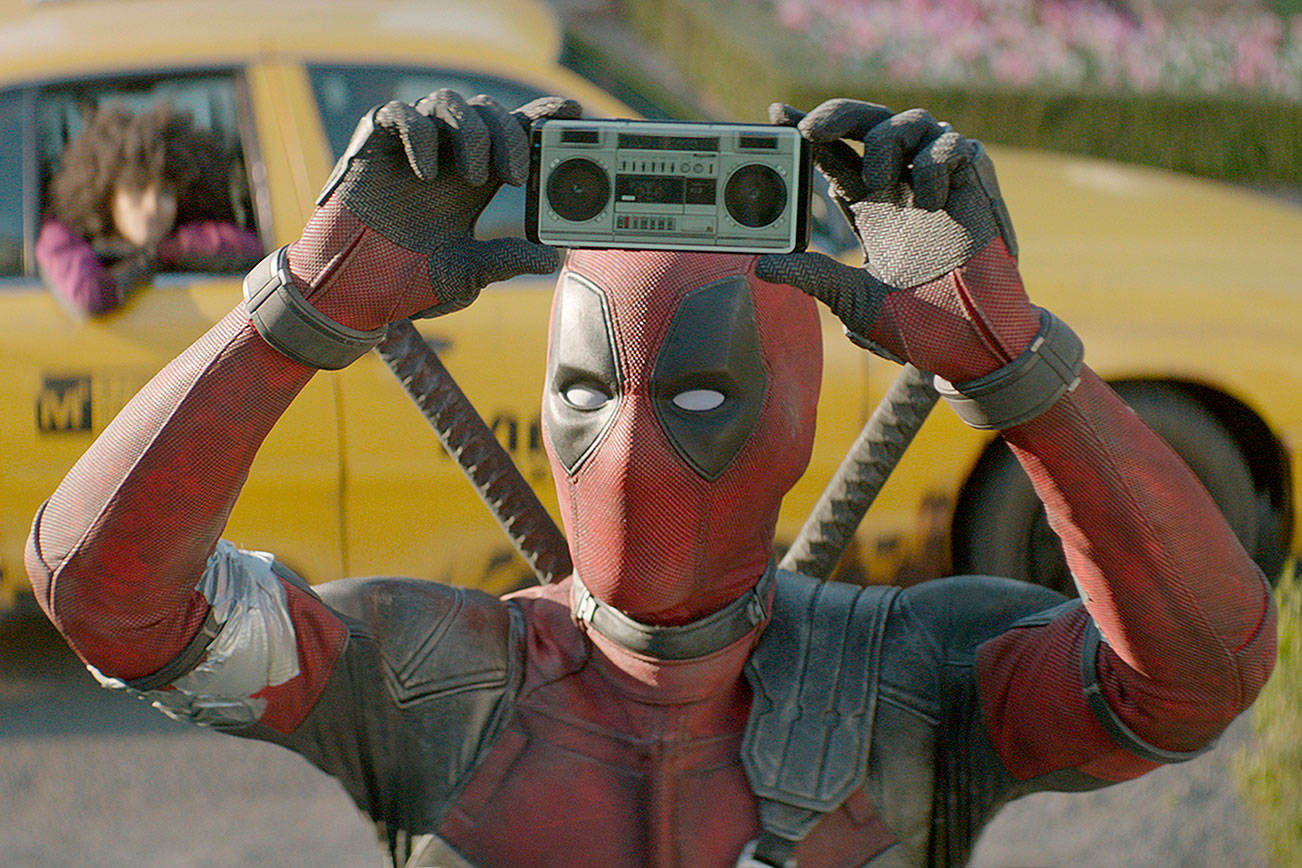In Captain Fantastic, the winner of this year’s SIFF Golden Space Needle award, Viggo Mortensen has found a role that fits his own reluctant image as a movie star. His character, Ben, withdrew from society years ago to enjoy a communal hippie-hang in the Washington woods. He and wife Leslie (Trin Miller) went off the grid for political and philosophical reasons, and the couple has raised a brood of children whose survivalist expertise outstrips their knowledge of everyday life in the outside world. Ben is skeptical of the System, the Man, and other capitalized sources of authority; he wants to stay out of view and raise the kids as “philosopher-kings.” The favored life skills he has instilled in his family include killing deer with bow and arrow, rigging a water cistern, and playing musical instruments at night instead of gazing at TVs or laptops.
Not every actor could pull off this combination of Thoreau and MacGyver, but Mortensen is utterly credible—in part because the actor himself has so frequently seemed to withdraw from the camera’s gaze, even when he’s at the center of a movie. I interviewed him a dozen years ago; while most high-wattage actors fill the room, it was striking how self-contained he was, while remaining faultlessly genial, articulate, and thoughtful. Born with movie-star looks, Mortensen spent the early part of his career backing away from success; he was intriguing in little indies, uncomfortable in Hollywood productions that might have been launching pads for more cutthroat actors. Then came The Lord of the Rings phenomenon and his moment in the box-office sun. Which prompts the question: How many other actors would “exploit” sudden success by making three David Cronenberg movies?
Mortensen is terrific in Captain Fantastic, although the rest of the film could use some toughening. (Incidentally, it was shot mostly in Washington, with evocative use of offbeat locations—even the right-wing Uncle Sam billboard on I-5 makes an appearance.) Writer/director Matt Ross (better known as a cast member of Silicon Valley) has taken great care with this little fable, mixing counterculture sympathies with lessons about the danger of living too far out there. After we meet them in their Northwest Eden, Ben and family hit the road in their bus, which puts them in unprecedented proximity to the real world. They clash with Leslie’s sister and brother-in-law (Kathryn Hahn and Steve Zahn) and eventually have to deal with Leslie’s stuffy parents (Frank Langella and Ann Dowd), who despise Ben.
Oldest son Bodevan (George MacKay) carries the greatest burden from his family’s sheltered existence. That’s how he gets in the position of proposing marriage immediately after a first tentative kiss with a girl he meets one night in a trailer park. This scene is typical of Ross’ approach to comedy—an uncomplicated gag that flatters the audience and allows Ben another teachable moment. Admittedly, it is funny to see little kids arguing about whether they are Maoists or Trotskyites, or see the family celebrating “Noam Chomsky Day” instead of more conventional holidays, but a little bit of that goes a long way here.
I think what bugs me about this undeniably entertaining movie is the way Ross goes to such pains to balance every single thing. We are encouraged to cheer on the family’s counterculture mojo, but there will be sober lectures about parental responsibility, too. The family includes one son (the convincingly skeptical Nicholas Hamilton) who chafes at his father’s insistent ways to provide contrast to the Age of Aquarius feeling the other kids enjoy. Every time Ben comes across as an Auntie Mame for the 21st century, Ross reminds us there’s a little Unabomber in there too. It’s all so very civilized, and after a while the movie’s slick style begins to feel like the opposite of Ben’s experiment in raw living. Captain Fantastic may be simpatico with the Woodstock philosophy, but it’s as organized as a political convention. Guild 45th. Rated R. Opens Fri., July 15.
film@seattleweekly.com








